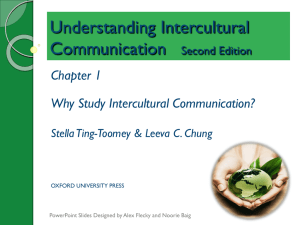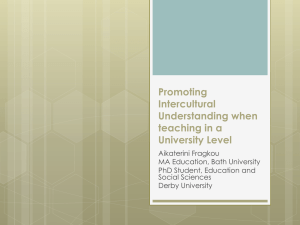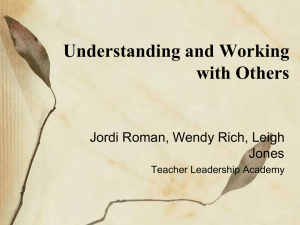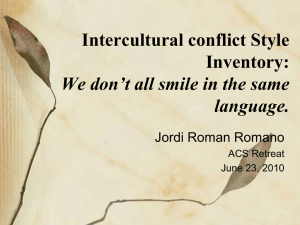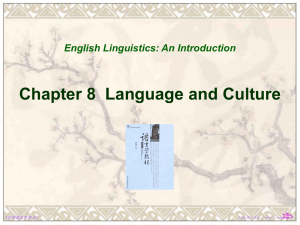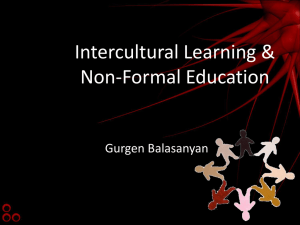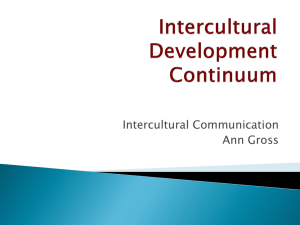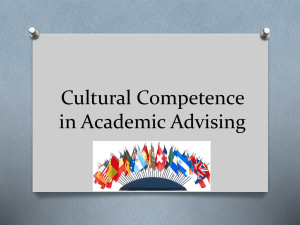here
advertisement
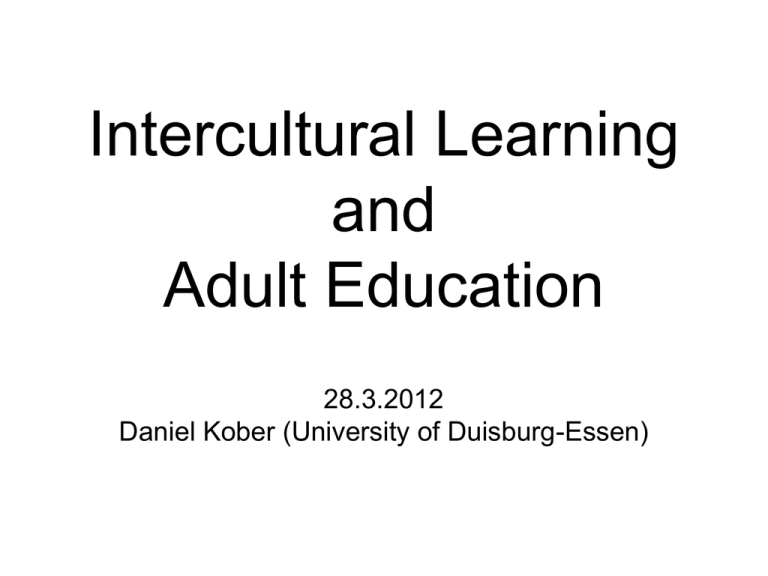
Intercultural Learning and Adult Education 28.3.2012 Daniel Kober (University of Duisburg-Essen) Agenda • Definition of „culture“ • Intercultural interaction • Intercultural trainings • Impact on adult education and perspectives What is „culture“? Task Please discuss with one partner how you would characterise „culture“! You have 10 minutes to collect your ideas. Culture („cultus / cultura“) Agriculture close d Arts narrow definitions Standard wide definitions Traditions open Definition • system of a collective behaviour • shared values, norms,traditions and symbols • collectives: nations, organisations, groups etc. • influence on: perceptions, cognitive processes, emotions, interpretations and actions • „normality“ and orientation • open and dynamic Hofstede: Cultural Dimensions Alexander Thomas: Critical Incidents • Examples Why do we have to deal with intercultural learning? Trends leading to a higher quantity of intercultural interactions... • Globalisation • Internationalisation • Migration / Mobility Exercise „Interaction“ Context Decode Code Sender Decode verbal non-verbal para-verbal extra-verbal Interaction Reciever Code Conceptas Perceptas D Intercultural interactions can lead to... misunderstandings anger fear agressions... ...new perspectives ideas innovations That is why it is neccessary for adult education to cope with intercultural interactions. What can we as adult educators do? Trainings • information vs. interaction • culture-specific vs. culture-unspecific 4 types of intercultural trainings interaction IV I culture-specific culture-unspecific III II information Perspectives • Intercultural coaching • Intercultural mentoring • Intercultural mediation • e-learning tools



